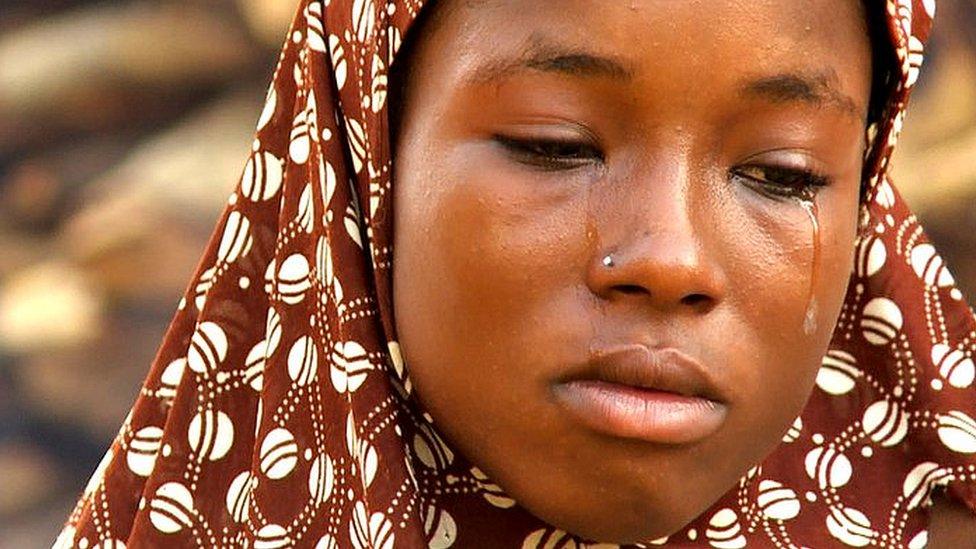Nigeria Chibok girls: Freed 82 meet President Buhari
- Published
The released Chibok girls received an official welcome in Abuja
The 82 schoolgirls released by Boko Haram Islamist militants have met Nigerian President Muhammadu Buhari.
They were escorted to the reception in the capital Abuja by armed soldiers, after a check-up at a medical centre.
Mr Buhari said he was joyous that they were free. He is now travelling to London for medical reasons as concern grows for his health.
A spokesman said there was "no cause for worry" and that he was travelling for a "follow-up" consultation.
Mr Buhari, 74, returned from the UK in March after seven weeks of sick leave. When he returned home he said he had never been so ill in his life.
What illness he has remains undisclosed but concerns about his condition grew in recent weeks after he missed several cabinet meetings.
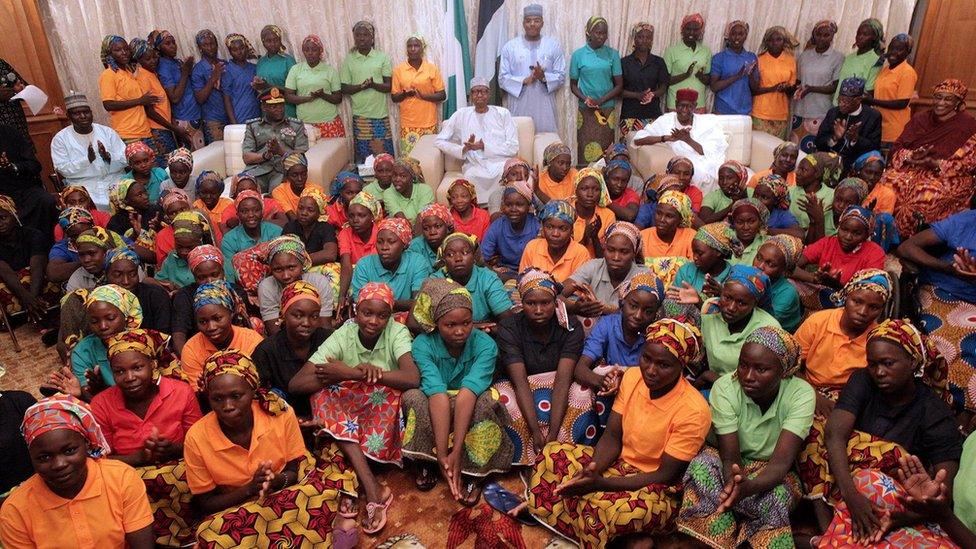
President Buhari delayed leaving for London in order to meet the girls, his office says
The girls were handed over on Saturday in exchange for Boko Haram suspects after negotiations.
They were from a group of 276 abducted in north-eastern Nigeria in 2014. Before the latest release, about 195 of the girls were still missing.
The number of Boko Haram suspects released by authorities remains unknown.
"I cannot express in a few words how happy I am to welcome our dear girls back to freedom," Mr Buhari told the girls in Abuja, according to his office.
"On behalf of all Nigerians, I will like to share my joy with you," he said.
Mr Buhari would have left earlier on Sunday to London but wanted to receive the schoolgirls, his spokesman Femi Adesina said.
Read more:
Arriving in Abuja earlier, some of the girls looked tired and confused by all the attention after spending three years in captivity.
Before being taken to the capital, they were brought by road convoy from a remote area to a military base in Banki near the border with Cameroon.
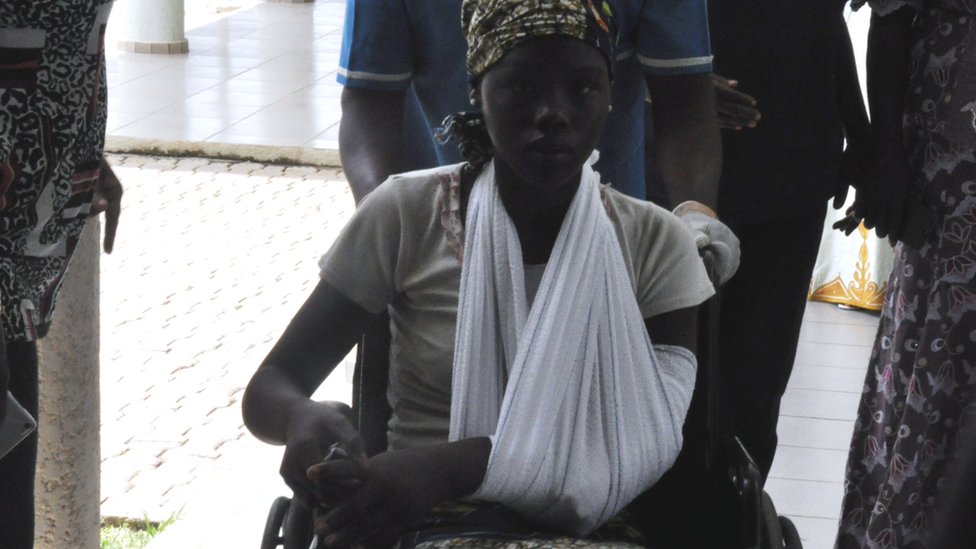
The released girls later arrived at a medical centre in Abuja for a check-up
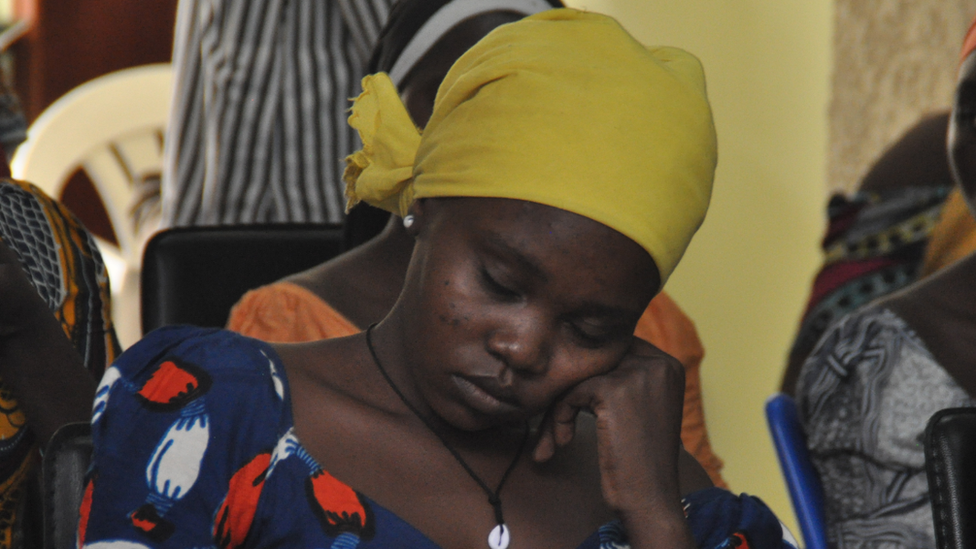
Some were visibly tired after their ordeal
Our reporter says that many families in Chibok will be rejoicing at this latest news, but more than 100 of the girls taken have yet to be returned.
"This is good news to us. We have been waiting for this day," Christian pastor Enoch Mark, whose two daughters were among those kidnapped, told Agence France-Presse.
"We hope the remaining girls will soon be released." It was unclear whether his daughters had been freed.
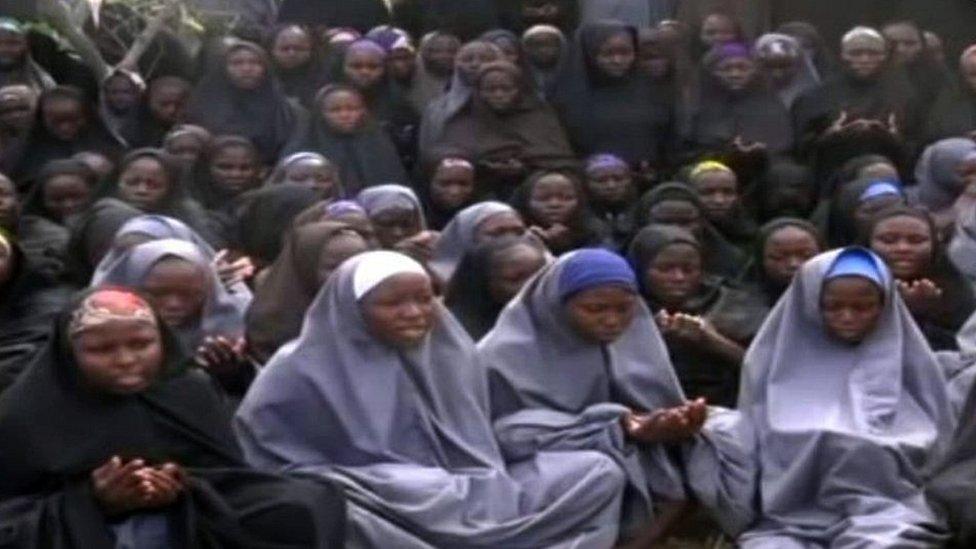
Some of the girls pictured in May 2014, shortly after their kidnapping
A statement from a spokesman for President Buhari earlier said he was deeply grateful to "security agencies, the military, the Government of Switzerland, the International Committee of the Red Cross, and local and international NGOs" for playing a role in the operation.
In a later BBC interview, presidential spokesman Garba Shehu added: "With all of these things together we negotiated over a period of several months, and at the end of it some of their [Boko Haram's] members were exchanged for the 82 girls."
After the Government Girls Secondary School in Chibok, Borno state, was raided in April 2014, more than 50 girls quickly escaped and Boko Haram then freed another 21 last October, after negotiations with the Red Cross.
The campaign for the return of the girls drew the support of then US First Lady Michelle Obama and many Hollywood stars.
Last month, President Buhari said the government remained "in constant touch through negotiations, through local intelligence to secure the release of the remaining girls and other abducted persons unharmed".
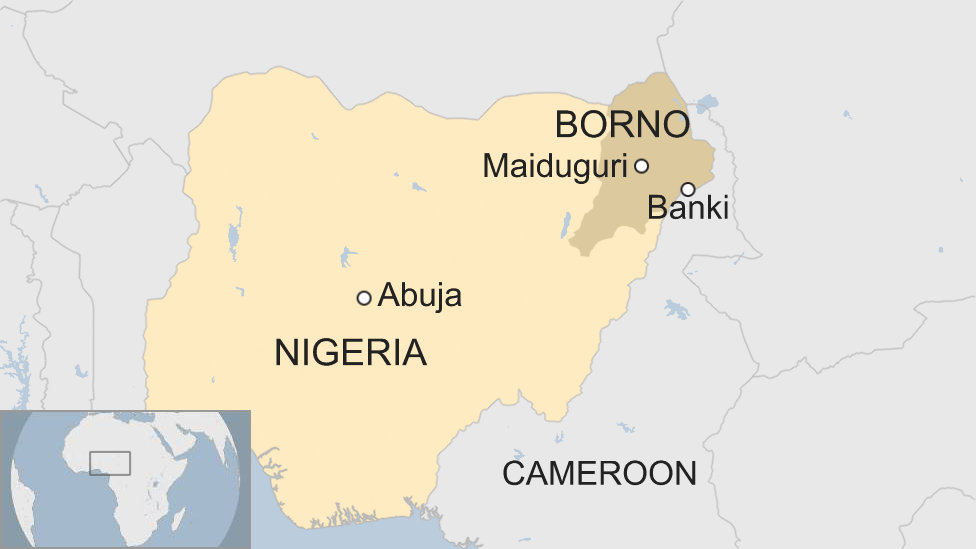
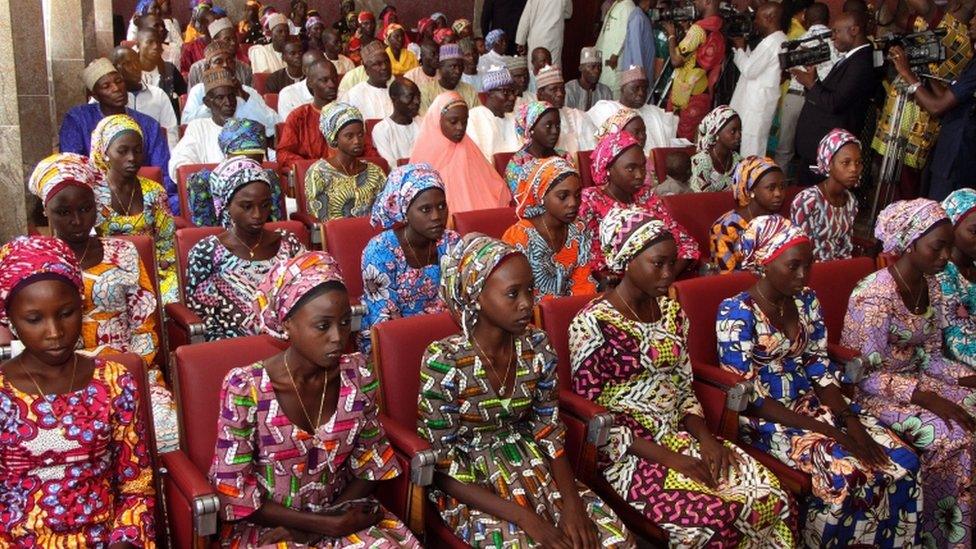
Twenty-one girls were released last October
Many of the Chibok girls were Christian, but were encouraged to convert to Islam and to marry their kidnappers during their time in captivity.
Boko Haram has kidnapped thousands of other people during its eight-year insurgency aimed at creating an Islamic caliphate in north-eastern Nigeria.
More than 30,000 others have been killed, the government says, and hundreds of thousands have been forced to flee from their homes.

Boko Haram at a glance:
Founded in 2002, initially focused on opposing Western-style education - Boko Haram means "Western education is forbidden" in the Hausa language
Launched military operations in 2009
Thousands killed, mostly in north-eastern Nigeria, hundreds abducted, including hundreds of schoolgirls
Seized large area in north-east Nigeria, where it declared a caliphate
Joined so-called Islamic State, now calls itself IS's "West African province"
Regional force has now retaken most of the captured territory
Group split in August after rival leaders emerged
- Published14 April 2016
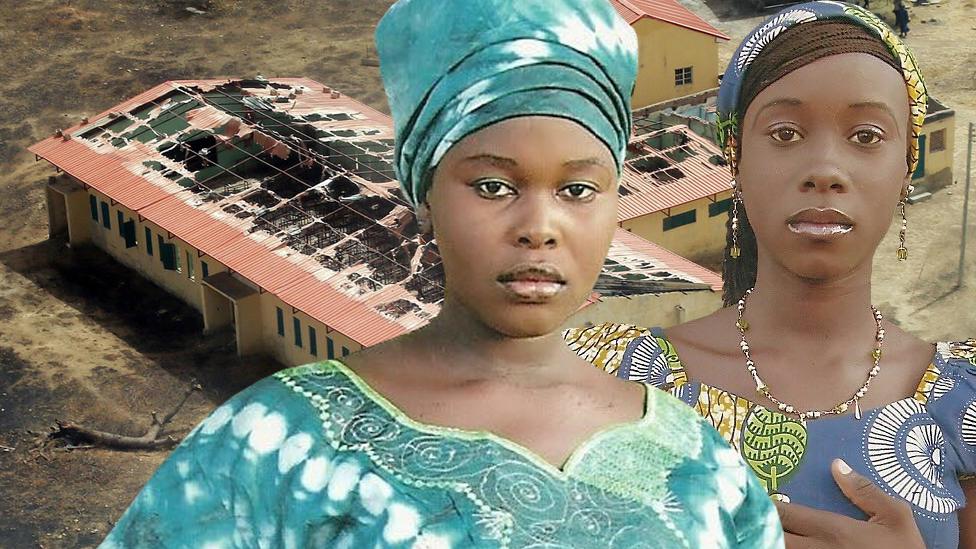
- Published14 April 2016
